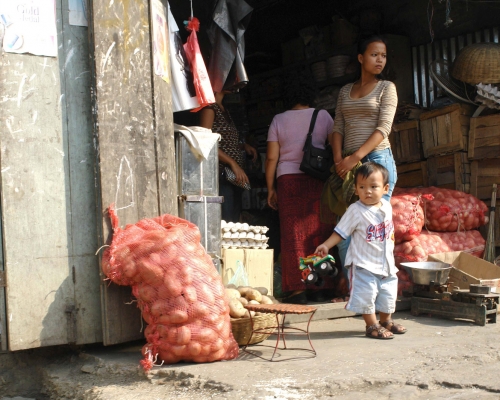Bible Translation
This is a strategic time in the history of Bible translation, and now is the time to do all we can to equip and encourage Bible translators. New partnerships, new technology and the growth of the Church around the world now makes it possible, under God's guidance, to enable all of the world's people to have access to the Bible in their mother tongue language.
The Bible is the most powerful catalyst for spiritual growth. The Holy Spirit, speaking through John says, “After this I looked and there before me was a great multitude that no one could count, from every nation, tribe, people, and language, standing before the throne and in front of the Lamb” (Revelation 7:9, NIV). We believe God has called us to help make this passage of scripture a reality. The task is not impossible.
We believe the Bible-less people have waited long enough. Not another generation should pass before they have access to God's Word. Even in areas where there are believers, the Church cannot grow as it should without being able to understand and learn from God's Word. Through the Word, churches are planted, believers are discipled, and lives are transformed.
This is why God has called Evangel Bible Translators into existence. We, who honor the Holy Spirit and love what the Spirit of God is doing in the world today, have chosen to engage. Our aim is to bring the Word of God to all people in their mother tongue.
Completed Translations
- Ayacucho Quechua – Peru
- Waama – Bénin
- Oobor* – S. Asia
- Matu Chin* – S. Asia
- Magahi* – S. Asia
* Completed New Testament
Translations In Progress
- Chortí – Guatemala
- Hill Madia – S. Asia
- Paniya – S. Asia
- Pengo – S. Asia
- Karka – S. Asia
- Lamkang – S. Asia
- Kobor – Myanmar
- Lobor – Myanmar
- Tobor
- Sechu
Literacy
Giving people access to God’s life-changing Word in their mother tongue language often involves language development. Literacy is vital. We work to equip people with skills to read and write in their language.
As long as people cannot understand the words they are reading, the Bible remains a closed book. Today about 200 million people (about 1,800 languages) still don’t have a Bible in their native language. Many more don’t have access to a Bible they can clearly understand.
Many of the world’s minority languages are oral, meaning they do not have a native system for writing. Because language is core to community and individual identity, a writing system must be created in close partnership with language speakers.
Scripts are chosen based on the dominant script being used in the area. Once the written word is constructed, we work to equip people with skills to read and write in their language.
This work often involves creating audio versions of Scriptures that are distributed during the learning process. Once the Bible translation work begins, efforts are focused on Scripture engagement and literacy, along with printing and distribution.


